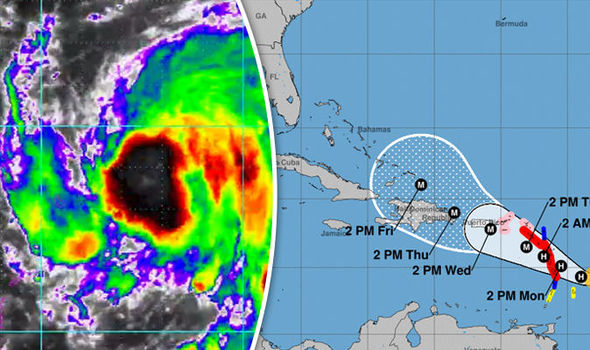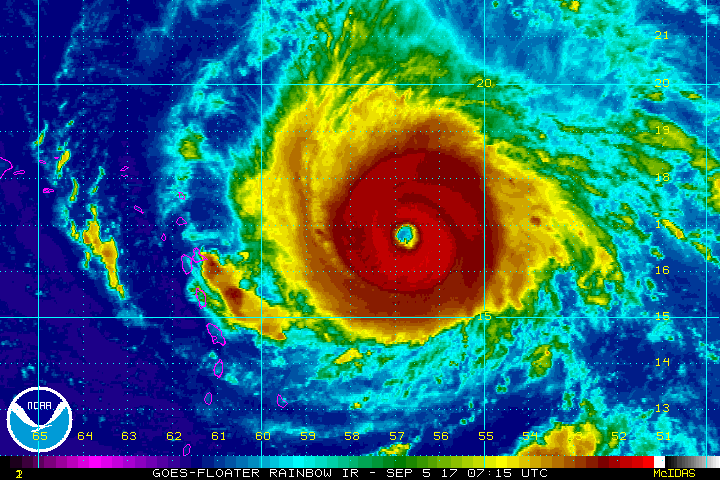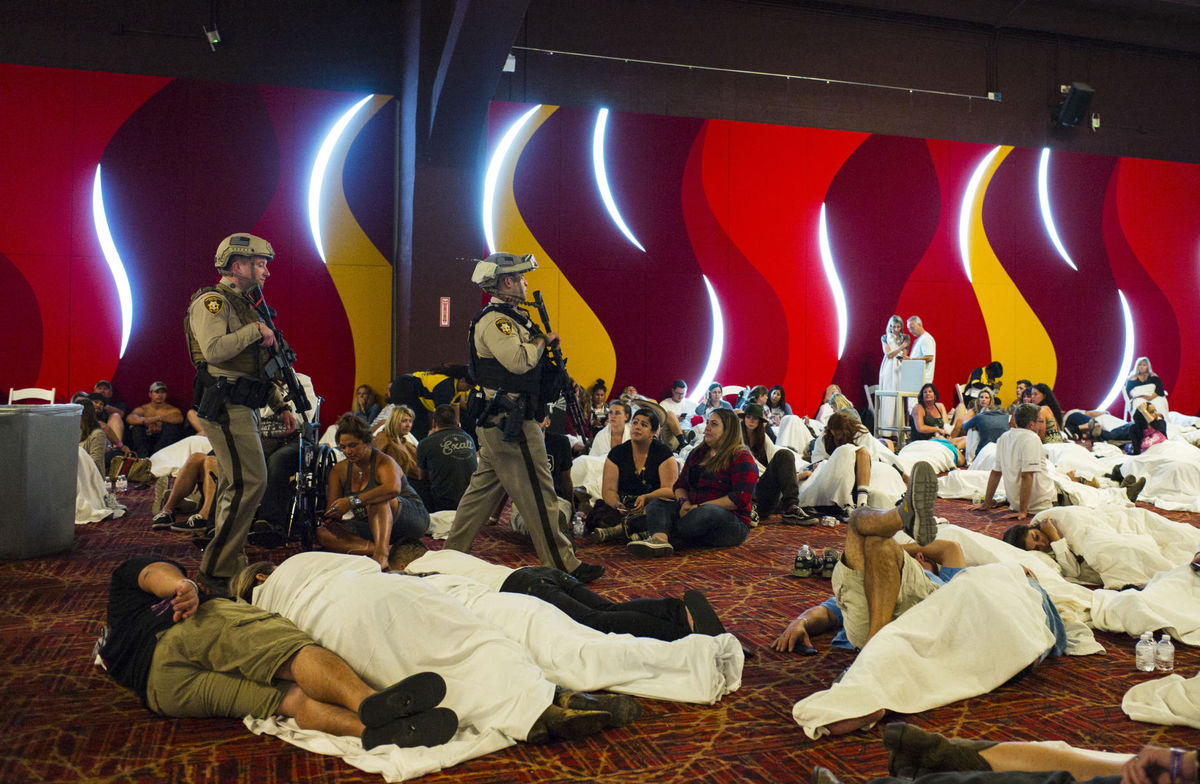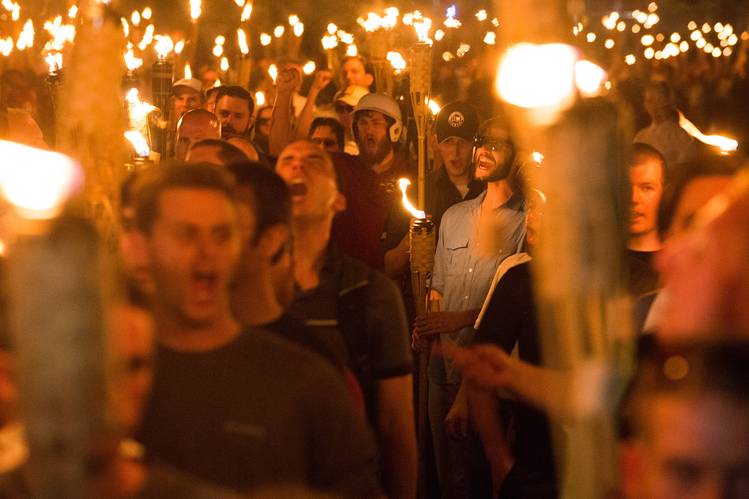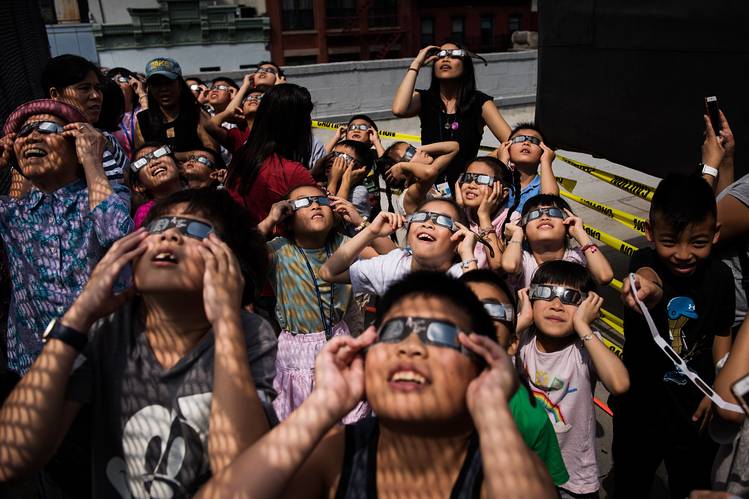CHRISTIANSTED — We certainly aren’t going out on a limb to call the Year 2017 the Year of the Hurricane.
Not when you live here.
Two Category 5 storms smacked down St. Thomas, St. John and St. Croix within the space of 13 days.
The Virgin Islands had gone years without multiple major storms, but 2017 will certainly stand out in local and U.S. history for refocusing attention on the danger of hurricanes, said John Nielsen-Gammon, the Texas state climatologist and a professor of meteorology at Texas A&M University.
A single season of bad storms “doesn’t add much to the already existing evidence” that global warming will lead to more extreme weather, Nielsen-Gammon said, but it highlights that coastal cities need to be ready. “This will stop people from claiming that hurricanes are not a potential problem.”
Hurricane Harvey swept through the Caribbean and deluged the Houston area from Aug. 17 to Sept. 1 with record rainfall of more than 50 inches. It caused the deaths, directly and indirectly, of 84 people in the U.S., according to the National Oceanic and Atmospheric Administration.
Hurricane Irma hit regional islands, including Puerto Rico and Cuba, then swept into Florida. The storm, which struck the Virgin Islands on Sept. 6 and then the Florida Keys on Sept. 10, caused 95 deaths in America, NOAA said.
At one point, 62 percent of Florida lacked power. The outages shut businesses and endangered lives—at least eight patients died after air conditioning went out at a Hollywood, Fla., nursing home. About 40 percent of the territory still does not have electricity, it Puerto Rico the number is comparable.
Right on Irma’s heels came Hurricane Maria, slamming first St. Croix on Sept. 19-20 and then Puerto Rico on Sept. 20 with the strongest winds there in nearly a century.
Puerto Rico authorities said 64 people were killed, though others said the toll was much higher. In the Virgin Islands six people died. The two islands’ infrastructures were devastated and nearly all of the commonwealth and Big Island were without power weeks after the storm.
NOAA hasn’t estimated the total cost of the three storms, but it is expected to be in the tens of billions of dollars.
Sexual Misconduct Rocks Media, Politics
This was the year workplace tensions over sexual misbehavior surged into the open, toppling one powerful man after another.
The most dramatic set of events was what already has been dubbed the Weinstein effect: A growing tide of women has been emboldened to go public with allegations of sexism, harassment and worse at the hands of high-profile men in entertainment, media and politics. The dam broke in October after dozens of women, including celebrities, accused Hollywood producer Harvey Weinstein of sexual harassment and assault.
In the months since, millions of working women have shared their own stories of assault or harassment via the social-media movement #metoo, as companies reaffirmed zero-tolerance policies.
Unlike previous national conversations about workplace sexism—as when Anita Hill testified in 1991 that then-Supreme Court Justice nominee Clarence Thomas harassed her while her boss—the consequences this time have been swift and decisive. Mr. Weinstein, who denied the allegations of nonconsensual sex, is only one of a number of accused men who have lost their jobs.
In media, TV hosts Bill O’Reilly, Matt Lauer and Charlie Rose were fired over sexual misconduct allegations. Mr. Rose and Mr. Lauer apologized, though both disputed some of the claims. Mr. O’Reilly called the claims unfounded and said he paid settlements only to spare his family the negative publicity of lawsuits. Comedian Louis C.K. said the claims he faced were true.
In politics, some GOP leaders disowned Alabama Senate candidate Roy Moore after allegations, which he denied, that he preyed on teenage girls while in his 30s. But President Donald Trump and the Republican National Committee backed his candidacy. On Tuesday, Moore lost the race to Democrat Doug Jones.
Rep. John Conyers Jr. (D., Mich.) resigned two weeks after acknowledging a settlement with a former employee, but denied he sexually harassed her. Sen. Al Franken (D., Minn.) said he would resign following calls from party colleagues to step down over sexual misconduct allegations. And Rep. Trent Franks (R., Ariz.) said he would resign after two former aides reported he asked staff members to be surrogates for his child.
The so-called Weinstein effect didn’t happen in a vacuum. It was preceded by months of revelations laying bare tensions over other gender imbalances at work, from pay and promotions to power, particularly in Silicon Valley, where the work-hard, play-hard culture of many startups has collided with a persistent dearth of women in tech.
Shootings Stun Las Vegas and a Tiny Texas Town
The country was shaken as two mass shootings came in quick succession this fall.
Stephen Paddock, a 64-year-old retired accountant, killed 58 people attending a country music festival on the Las Vegas Strip. The Oct. attack ranks as the deadliest shooting in modern U.S. history. Five weeks later, Devin Kelley, 26, killed 26 people—including a pregnant mother and a toddler—at a small church in the rural Texas town of Sutherland Springs, marking the fifth deadliest such attack.
Mass shootings continue to make up a small percentage of all gun deaths in America. Of the 14,088 killings so far this year, 417 came in incidents where four or more people, excluding the shooter, were injured or killed, according to the Gun Violence Archive, a nonprofit research group.
But the number of people killed or injured in mass incidents in 2017 is higher than in the three previous years, the group’s data show. There is no general agreement on the definition of a mass shooting, so tallies often differ between researchers.
A white-supremacist rally in Charlottesville, Va., that featured a nighttime parade of torch-bearing participants turned deadly Aug. 12 when a car slammed into a group opposing the rally, killing a woman and injuring 19. The scheduled removal of a statue of Confederate Gen. Robert E. Lee set off the initial demonstrations.
Four college basketball assistant coaches and six other people were arrested in September as part of an investigation into corruption in the sport. Federal charges allege a scheme in which agents, financial advisers and sports-apparel executives bribed coaches to direct players to them.
A total eclipse of the sun crossed the U.S. from coast to coast for the first time since 1918. Millions of people looked skyward Aug. 21, using special protective glasses, as the moon obscured the sun for several minutes.
The opioid epidemic prompted numerous states and counties to sue drug makers. The suits allege the companies used deceptive marketing practices to push sales of the painkillers.
Amazon set off a scramble among cities when it announced in September it would solicit proposals to locate a second headquarters in North America. The site is expected to house up to 50,000 workers and cost over $5 billion.

